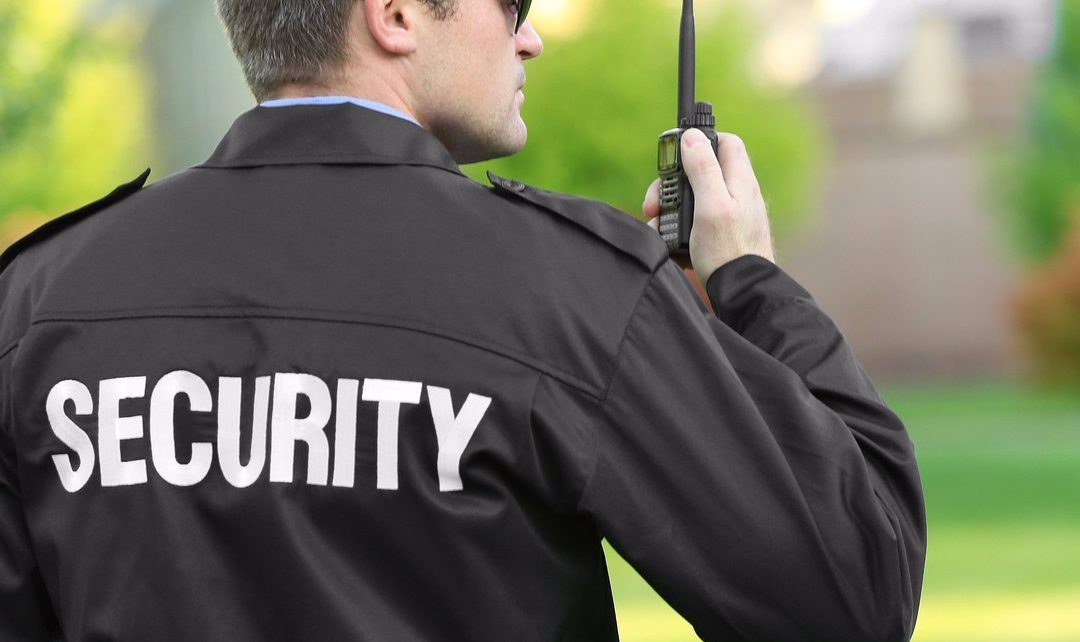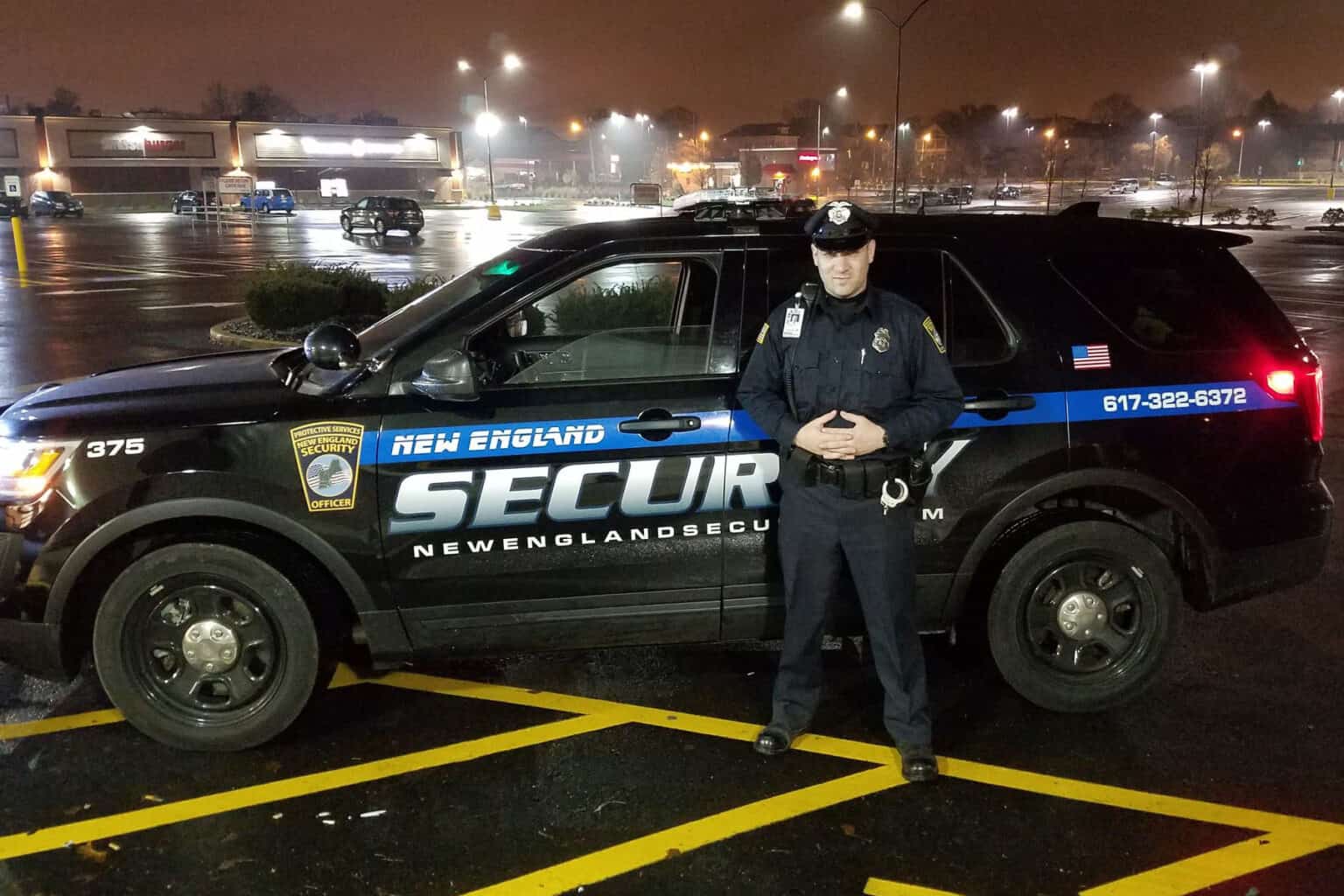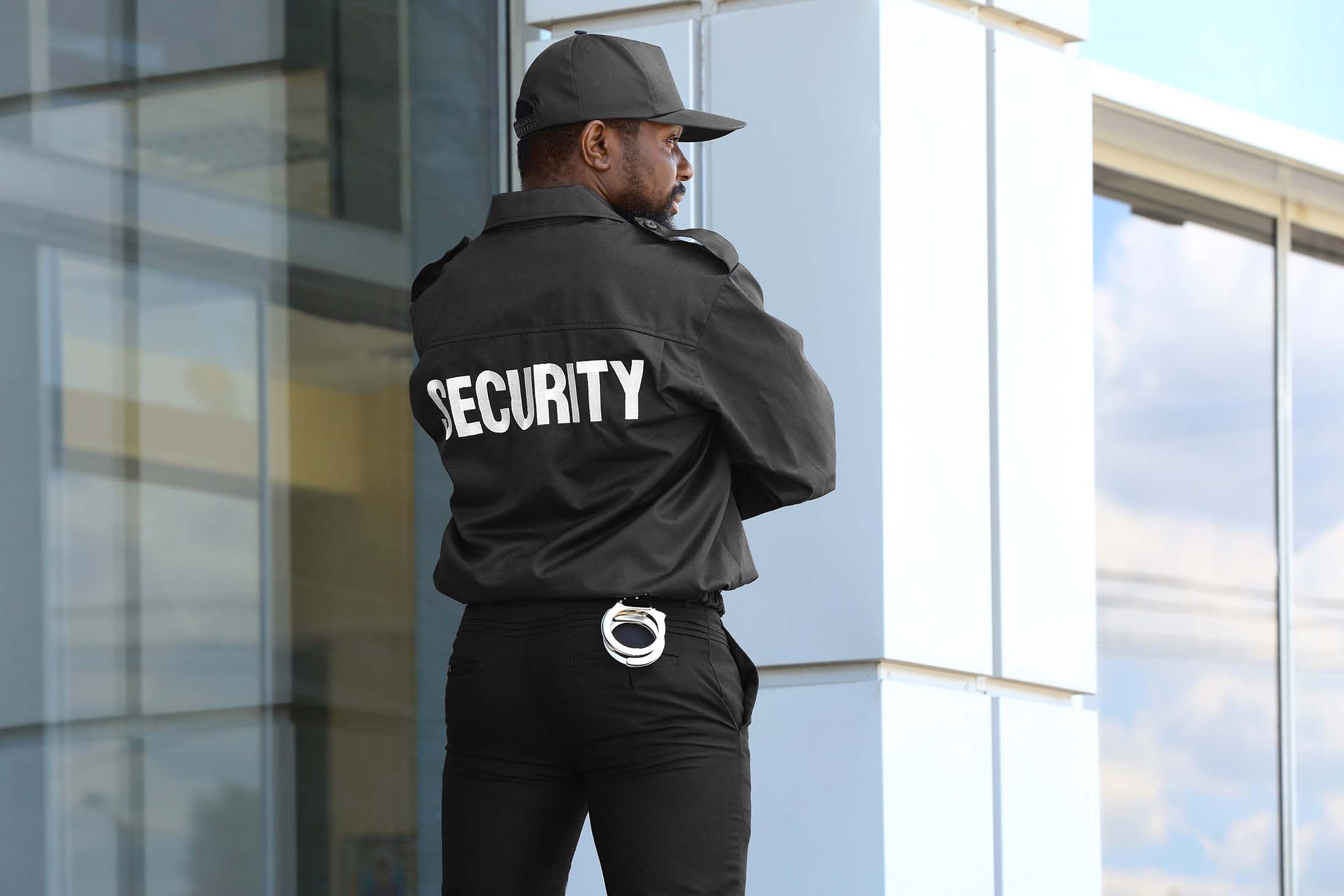How do you become an armed security guard? It’s a question that sparks curiosity and a sense of responsibility. Imagine yourself standing as a guardian, trained to protect and deter, with the weight of responsibility resting on your shoulders. It’s a path that requires dedication, commitment, and a keen understanding of the law and ethical considerations.
The journey to becoming an armed security guard is a multifaceted one, requiring a blend of qualifications, training, and unwavering dedication. It’s not just about wielding a firearm, but about mastering the art of de-escalation, upholding the law, and ensuring the safety of those you are entrusted to protect.
Eligibility Requirements

Becoming an armed security guard is a serious responsibility, and it’s crucial to meet the necessary requirements to ensure you’re qualified and prepared for the job. Before you can start patrolling, you’ll need to meet certain criteria, including age, education, background, and training.
Age Requirements
The minimum age to become an armed security guard varies by state. In most states, you must be at least 18 years old to work as an unarmed security guard, but to carry a firearm, you typically need to be at least 21. This age requirement ensures that security guards have the maturity and experience to handle firearms responsibly.
Educational Qualifications
Generally, a high school diploma or equivalent is required to become an armed security guard. Some states may require a higher level of education, like an associate’s degree or a bachelor’s degree, depending on the specific duties of the position.
Criminal Background Checks
Every state requires a thorough criminal background check for armed security guard applicants. This check ensures that individuals with a history of violent crimes or other serious offenses are not granted the authority to carry firearms.
Training and Certifications
To become an armed security guard, you must complete a state-approved training program. This program typically includes classroom instruction and practical training on topics such as:
- Firearms safety and handling
- Legal aspects of security work
- First aid and CPR
- De-escalation techniques
- Security procedures
You’ll also need to obtain a state-issued license or certification to work as an armed security guard. This certification demonstrates that you’ve met the required training standards and are qualified to carry a firearm while on duty.
Training and Certification
You’ve decided to become an armed security guard. Awesome! Now, it’s time to level up your skills and knowledge. This involves getting certified and going through some serious training. Think of it like getting your security guard “license” to operate.
The Path to Certification
To become a certified security guard, you’ll need to navigate a specific process that varies by state. But the general idea is to:* Complete a basic security guard training course: This is the foundation for your security guard knowledge.
Pass a state-administered exam
You’ll need to prove you’ve got the knowledge to be a responsible security guard.
Apply for your security guard license
This is the official document that lets you work as a security guard.
Basic Security Guard Training
Think of basic security guard training as your security guard bootcamp. It’s where you learn the essential skills and knowledge to keep things safe and secure. Here’s what you can expect:* Security principles and practices: This covers the basics of security, like risk assessment, security planning, and security procedures.
Legal aspects of security
You’ll learn about the laws and regulations that govern security work, like the use of force and the rights of suspects.
Communication and conflict resolution
This helps you handle situations peacefully and effectively, whether it’s dealing with a disruptive person or a tense situation.
First aid and CPR
You’ll learn how to provide basic medical assistance in case of an emergency.
Report writing
You’ll learn how to write clear and concise reports about security incidents.
Armed Security Guard Training
Now, let’s get to the heart of the matter – armed security guard training. This is where you’ll learn how to handle firearms safely and responsibly. Here’s a breakdown:* Firearms safety and handling: This covers the fundamentals of firearm safety, including proper storage, handling, and cleaning.
Firearms laws and regulations
You’ll learn about the laws that govern the use of firearms by security guards, including the use of force and the rules for carrying a firearm.
Live-fire training
This is where you’ll actually shoot a firearm at a range under the supervision of a qualified instructor.
Scenario-based training
You’ll learn how to handle real-life situations that may involve the use of a firearm, like active shooter situations or hostage situations.
Continuing Education
The world of security is constantly evolving. That’s why ongoing training and continuing education are crucial for armed security guards. This keeps you up-to-date on the latest security threats and techniques. You’ll also learn about new laws and regulations that might impact your work.
Job Responsibilities

Being an armed security guard is more than just standing around with a gun. It’s a serious job that requires a lot of responsibility and a commitment to keeping people safe. Armed security guards play a vital role in protecting people and property, and their duties can vary depending on the specific environment they work in.
Typical Duties
Armed security guards have a wide range of responsibilities, which include:
- Patrolling: They walk or drive around the assigned area, looking for any suspicious activity or security breaches. Think of them as the eyes and ears of the property they’re protecting. They might be checking doors, windows, fences, or even looking out for potential threats in the area.
- Surveillance: They monitor security cameras and other surveillance systems to identify potential threats and investigate incidents. This could involve watching live feeds, reviewing recorded footage, or even using specialized software to analyze patterns and identify potential risks.
- Access Control: They control entry and exit points to restricted areas, verifying identification and ensuring only authorized individuals are allowed access. Think of them as the gatekeepers of the property. They might be checking badges, ID cards, or even using security systems to grant access.
- Responding to Security Incidents: They investigate security incidents, such as burglaries, vandalism, or disturbances, and take appropriate action to resolve the situation. This could involve calling the police, contacting the property owner, or even taking physical action to protect people and property.
- Providing Customer Service: They provide assistance to customers and employees, answering questions and resolving security-related issues. They’re there to help people feel safe and secure, and they might even be the first point of contact for anyone experiencing a problem.
Responding to Security Incidents
Armed security guards are trained to respond to a variety of security incidents, including:
- Active Shooter Situations: These are the most serious security incidents, and armed security guards are trained to respond with a specific set of protocols. The primary goal is to neutralize the threat and protect innocent lives.
- Burglaries and Vandalism: Armed security guards are responsible for investigating these incidents, gathering evidence, and reporting the crimes to the police.
- Disturbances and Fights: Armed security guards are trained to de-escalate these situations and maintain order. They might use their presence and authority to calm people down, or they might have to intervene physically to prevent further escalation.
Legal Responsibilities
Armed security guards have a lot of legal responsibilities, including:
- Use of Force: Armed security guards are only allowed to use force when it is necessary to protect themselves or others from harm. They must follow the law and their employer’s policies regarding the use of force.
- De-escalation Techniques: Armed security guards are trained to use de-escalation techniques to avoid using force whenever possible. They’re trained to communicate effectively, remain calm under pressure, and use their presence to diffuse potentially dangerous situations.
- Reporting Requirements: Armed security guards are required to report all incidents and suspicious activity to their supervisors and the authorities. They are responsible for documenting their actions and maintaining accurate records of all events.
Types of Security Environments
Armed security guards work in a variety of environments, including:
- Corporate Security: Protecting businesses, offices, and employees. This could involve guarding office buildings, data centers, or even corporate events.
- Retail Security: Protecting retail stores, shopping malls, and other commercial properties. This could involve patrolling the store, monitoring security cameras, and responding to shoplifting or other incidents.
- Residential Security: Protecting gated communities, apartment complexes, and other residential properties. This could involve patrolling the property, monitoring security cameras, and responding to burglaries or other incidents.
- Event Security: Protecting concerts, sporting events, and other large gatherings. This could involve controlling crowds, enforcing security protocols, and responding to emergencies.
- Government Security: Protecting government buildings, military installations, and other sensitive facilities. This could involve guarding government offices, patrolling military bases, or even protecting dignitaries.
Career Path and Advancement

Becoming an armed security guard is a great way to start a career in law enforcement or security. However, it’s important to understand that this is just the beginning of your journey. There are many opportunities for advancement and growth within the security industry, and you can build a fulfilling and successful career.
Career Advancement Opportunities
Many armed security guards seek career advancement opportunities, such as becoming a supervisor, manager, or even starting their own security company. These opportunities are often available to those who demonstrate strong leadership, communication, and problem-solving skills. They may also require additional training and certifications, which can help you stand out from the crowd.
Importance of Professional Development and Certifications, How do you become an armed security guard
Professional development and certifications are essential for advancement in the security industry. They demonstrate your commitment to your career and your ability to keep up with the latest trends and best practices. Many employers value certifications and look for candidates who have them.
- Security Officer Certification (SOC): This is a widely recognized certification for security professionals. It demonstrates your knowledge of security principles, procedures, and regulations.
- Certified Protection Professional (CPP): This certification is offered by the American Society for Industrial Security (ASIS) and is considered a highly respected credential for security professionals. It requires extensive experience and education in the field.
- Other Specialized Certifications: There are many other specialized certifications available for armed security guards, such as those related to executive protection, counter-terrorism, or specific industry sectors.
These certifications can help you specialize in a particular area and increase your earning potential.
Specialized Training Programs
Specialized training programs can help you develop the skills and knowledge necessary to advance in your career. These programs may cover topics such as:
- Executive Protection: This type of training focuses on protecting high-profile individuals, such as CEOs, celebrities, and politicians. It involves techniques for assessing threats, conducting risk assessments, and providing close protection.
- Counter-Terrorism: This type of training covers the principles and tactics for responding to terrorist threats. It may involve training in weapons handling, surveillance detection, and emergency response procedures.
- Other Specialized Programs: Other specialized programs may be available for security guards working in specific industries, such as healthcare, education, or transportation. These programs may cover topics related to the specific risks and challenges faced in those industries.
Tips for Building a Successful Career in Armed Security
Building a successful career in armed security requires dedication, hard work, and a commitment to continuous learning. Here are some tips for success:
- Gain Experience: The more experience you have, the more valuable you will be to employers. Start with entry-level positions and work your way up.
- Network: Attend industry events and conferences to meet other security professionals and learn about new opportunities.
- Stay Up-to-Date: The security industry is constantly evolving. Keep up with the latest trends and technologies by reading industry publications and attending training courses.
- Develop Your Skills: Focus on developing your communication, problem-solving, and leadership skills. These skills are essential for success in any security role.
- Be Professional: Always maintain a professional demeanor and appearance. This will help you build trust with clients and colleagues.
Legal Considerations
Being an armed security guard means you’re entrusted with a serious responsibility – protecting people and property, sometimes with lethal force. It’s crucial to understand the legal framework surrounding this role, including the laws, ethical considerations, and potential consequences of your actions.
Laws and Regulations Governing Firearms Use
The legal landscape governing the use of firearms by security guards varies by state and even municipality. These laws cover aspects like:
- Licensing and Training Requirements: Security guards must obtain licenses and undergo rigorous training to handle firearms legally. This training often includes classroom instruction, range practice, and legal implications of using firearms.
- Use of Force Continuum: This model Artikels the levels of force a security guard can use, starting from verbal warnings and escalating to physical restraint, and finally, deadly force. The use of deadly force is typically reserved for situations where there’s an immediate threat of serious bodily harm or death.
- Duty to Retreat: Some states require security guards to retreat from a dangerous situation if it’s safe to do so, while others allow them to stand their ground. Knowing your state’s laws regarding this is crucial.
- Reporting Requirements: Security guards are typically obligated to report any use of force, even if it’s a verbal warning, to their supervisors and possibly law enforcement.
Ethical Considerations of Using Deadly Force
The decision to use deadly force is a weighty one, with potentially life-altering consequences. Ethical considerations include:
- Proportionality: The level of force used should be proportional to the threat posed. A security guard should not use deadly force when a less lethal option is available.
- Duty to Protect: Security guards have a responsibility to protect the safety of others. However, this duty should not be used as justification for reckless or unnecessary use of force.
- Moral Compass: Security guards must rely on their own moral compass to guide their actions. Ethical dilemmas can arise in complex situations, and guards must make decisions based on their principles and training.
Legal Cases Related to Security Guard Misconduct
Numerous legal cases highlight the potential consequences of security guard misconduct, particularly involving the use of firearms:
- Excessive Force: Cases involving security guards using excessive force, often resulting in injuries or death, can lead to criminal charges and civil lawsuits.
- Negligence: Security guards may be held liable for negligence if their actions or inactions contribute to an injury or loss of life.
- Violation of Civil Rights: Security guards must be mindful of individuals’ civil rights. Unjustified arrests or detentions can lead to legal action.
Resources for Security Guards
Staying informed about legal changes and best practices is crucial for security guards. Here are some resources:
- State Licensing Boards: Each state has a licensing board that governs security guard regulations and provides updates on legal changes.
- Professional Associations: Organizations like the American Society for Industrial Security (ASIS) offer training, certifications, and legal updates for security professionals.
- Legal Counsel: Security guards should consult with legal counsel to ensure they understand their rights and obligations.
The path to becoming an armed security guard is a demanding but rewarding one. It requires a blend of physical and mental fortitude, a commitment to upholding the law, and a strong sense of responsibility. The journey begins with meeting the eligibility requirements, progresses through rigorous training, and culminates in a career that blends security, vigilance, and the responsibility of protecting others.
As you navigate this path, remember the gravity of your role and the importance of staying informed, vigilant, and committed to upholding the highest standards of professionalism.
FAQ Resource: How Do You Become An Armed Security Guard
What are the salary expectations for an armed security guard?
Salaries for armed security guards vary based on experience, location, and the specific type of security environment. Researching average salaries in your area can provide a good starting point.
How often do I need to renew my security guard license?
License renewal requirements vary by state. It’s essential to stay informed about the specific renewal procedures and deadlines in your jurisdiction.
Are there any specific physical fitness requirements for armed security guards?
While specific requirements may vary, most security agencies emphasize physical fitness as a crucial aspect of the job. Maintaining a healthy lifestyle and demonstrating basic physical capabilities can be beneficial.
What are some of the common challenges faced by armed security guards?
Challenges can include long shifts, dealing with difficult individuals, and managing stressful situations. Developing strong coping mechanisms and seeking support from colleagues and supervisors can help navigate these challenges.






